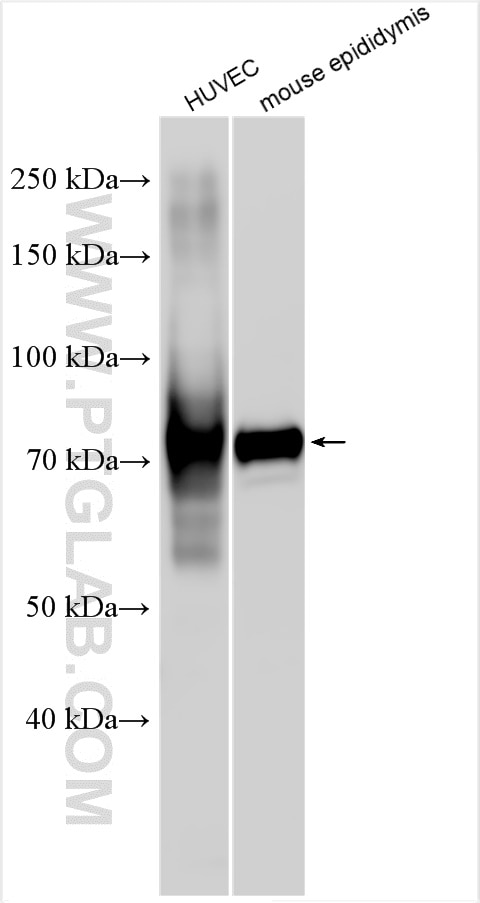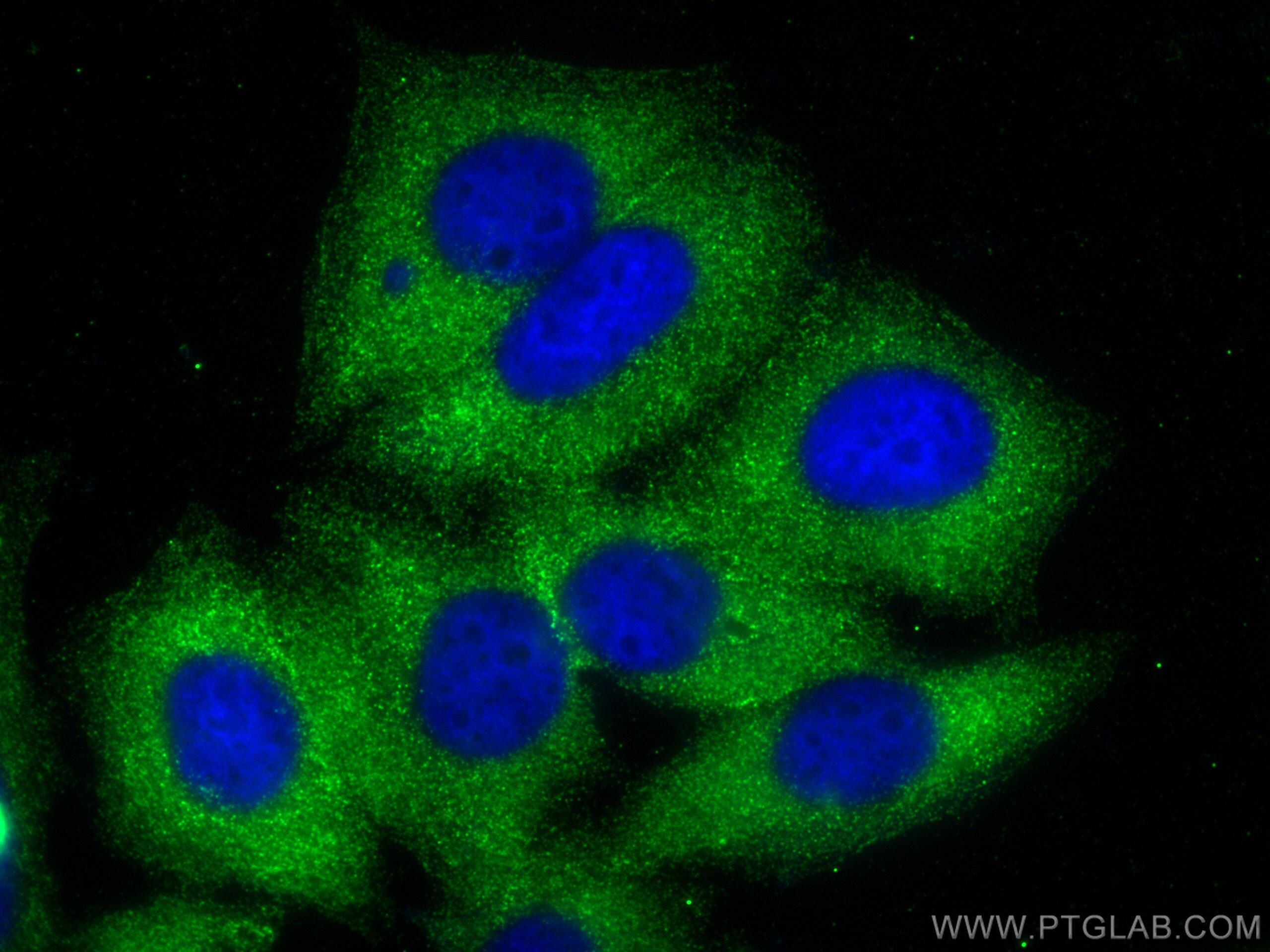Validation Data Gallery
Tested Applications
| Positive WB detected in | HUVEC cells, mouse epididymis tissue |
| Positive IF/ICC detected in | HepG2 cells |
Recommended dilution
| Application | Dilution |
|---|---|
| Western Blot (WB) | WB : 1:500-1:1000 |
| Immunofluorescence (IF)/ICC | IF/ICC : 1:200-1:800 |
| It is recommended that this reagent should be titrated in each testing system to obtain optimal results. | |
| Sample-dependent, Check data in validation data gallery. | |
Product Information
27413-1-AP targets BMX in WB, IF/ICC, ELISA applications and shows reactivity with human, mouse samples.
| Tested Reactivity | human, mouse |
| Host / Isotype | Rabbit / IgG |
| Class | Polyclonal |
| Type | Antibody |
| Immunogen | BMX fusion protein Ag26407 相同性解析による交差性が予測される生物種 |
| Full Name | BMX non-receptor tyrosine kinase |
| Calculated molecular weight | 675 aa, 78 kDa |
| Observed molecular weight | 70 kDa |
| GenBank accession number | BC016652 |
| Gene Symbol | BMX |
| Gene ID (NCBI) | 660 |
| RRID | AB_3669599 |
| Conjugate | Unconjugated |
| Form | Liquid |
| Purification Method | Antigen affinity purification |
| UNIPROT ID | P51813 |
| Storage Buffer | PBS with 0.02% sodium azide and 50% glycerol , pH 7.3 |
| Storage Conditions | Store at -20°C. Stable for one year after shipment. Aliquoting is unnecessary for -20oC storage. |
Background Information
BMX (Bone marrow kinase on chromosome X) is a cytosolic tyrosine kinase and a member of the TEC kinase family. BMX is expressed in hematopoietic cells of the myeloid lineage where it participates in the immune response. Moreover, BMX is expressed in several types of cancers and very recently has been shown to mediate the survival and tumorigenicity of glioblastoma cancer stem cells (PMID: 22449076).
Protocols
| Product Specific Protocols | |
|---|---|
| WB protocol for BMX antibody 27413-1-AP | Download protocol |
| IF protocol for BMX antibody 27413-1-AP | Download protocol |
| Standard Protocols | |
|---|---|
| Click here to view our Standard Protocols |

